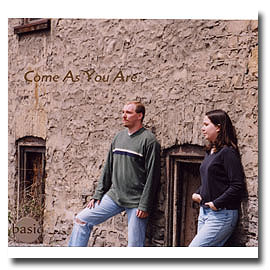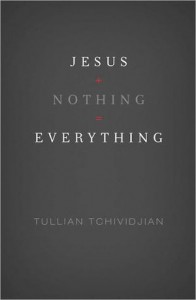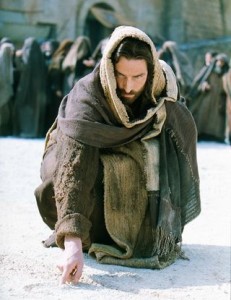Have you heard that as a cheer? We hear it when something “good” happens. We hear it less often when nothing good happens, and even less often when BAD things happen.
But he is still good.
I heard good news last week. In fact, the news was “good” to a whole region of people. Western New York oft repeated the phrase, “God is good!” on Twitter, Facebook and out loud upon hearing the news that former Buffalo Bills quarterback, Jim Kelly—a member of the NFL Hall of Fame, and beloved by so many here, and around the world—was cancer-free, again! (The second time he’s had to fight cancer, and won.)
Jim has an incredible story, really. He was not such a nice guy in his playing days. But God has used one crazy, tragic event after another to transform him into a man who is so generous, so thoughtful toward others, some might hardly recognize him. He does much good for many people, and is loved (as I said) by so many.

God is good! All the time!
But when I read and heard all those things, there was a twinge of “yucky” feelings in me. (And I now admit, that really should not be there. I am to rejoice with those who rejoice. The Kelly news should be celebrated! It’s great! God is good!)
I could only think, “Would those people have said the same thing, ‘God is good, all the time!’, had God not written a full recovery into Jim’s story? They might… but probably fewer people would remember to say it.
Job did. He had absolutely everything taken from him other than his wife, and his life. All his children, his wealth, his possessions, even his health. And still he said:
He said,
“I came naked from my mother’s womb,
and I will be naked when I leave.
The Lord gave me what I had,
and the Lord has taken it away.
Praise the name of the Lord!”
We’ve heard the story. But have you lived it? Are you now? We know many people dealing with many hard things, and despite the wearisome, never-ending, painful, life-draining circumstances they are enduring, they too will staunchly declare: God is good! All the time!
They know He is. They’ve felt him, even in the darkest moments, reminding them of his deep love for them, and his true goodness, and his constant care and affection for them. Not just a Bible memory verse, but an every day—every moment—reality.
Do you know that? I ask myself, do I? Am I not prone to the same “God is Good” when things go the way I hope they would go, and less often when they do not?
Yes. I am weak. I can not always (without hesitation) say “Praise the name of the Lord!” as Job, or my friends.
But their example reminds me that even in the most unimaginable, unwanted, nearly-hopeless situations… yet we have hope. We know that he is with us. Really with us. When you see these friends, you can’t help but smile in response to their smiles! What a great example of the hope we have in Jesus, and the true joy we can know in him (not to mention a great example of the love of a husband and wife for each other, enduring together all things, no matter how difficult).
What is life throwing at you? What is too hard to handle, to bear, to stand up under.
Stop trying to stand. Rest. Trust. Hope.
Have you not known? Have you not heard? The Lord is the everlasting God, the Creator of the ends of the earth. He does not faint or grow weary; his understanding is unsearchable. He gives power to the faint, and to him who has no might he increases strength. Even youths shall faint and be weary, and young men shall fall exhausted; but they who wait for the Lord shall renew their strength; they shall mount up with wings like eagles; they shall run and not be weary; they shall walk and not faint.
Those are words on a poster—until you need them. And we all do, or someday will.
Count it pure joy when you face trials of many kinds. They are reminders that we need him, yes, and it is usually in those times that we are reminded that (even better) He is with us.
So it is true: God is good, all the time. All the time, God is good.
The trick is learning to say that when the times are less than “good”. Still he is and always will be… good.


 Strength.
Strength.

 I am not very comfortable in “Christian” settings. For a long time now, I’ve said that I “don’t like Christians”, but that’s meant to be at least somewhat tongue-in-cheek. I know that Jesus is life, that there is no life outside of him; and for me, everything I do, and see, and experience runs through that filter.
I am not very comfortable in “Christian” settings. For a long time now, I’ve said that I “don’t like Christians”, but that’s meant to be at least somewhat tongue-in-cheek. I know that Jesus is life, that there is no life outside of him; and for me, everything I do, and see, and experience runs through that filter.
 In many places within the pages of the Bible we read that Jesus was without sin. He who had no sin became sin for us… He is the spotless lamb… He faced all the same temptations we do, but he did not sin.
In many places within the pages of the Bible we read that Jesus was without sin. He who had no sin became sin for us… He is the spotless lamb… He faced all the same temptations we do, but he did not sin.
 I’ve seen this in action as a school bus driver, believe it or not. I’m sure you have a picture in your mind of what it’s like on a big bus full of young children. And… you’re right. It’s pretty loud, energetic, fun, and crazy! But the drivers who have the best ability to control their busses, when needed, are those who look kids in the eyes when they first get on the bus and offer a genuine, friendly greeting. When things get out of hand, they address the unruly ones by name, firmly but respectfully, and most often, the measure of respect that is given is the same measure returned.
I’ve seen this in action as a school bus driver, believe it or not. I’m sure you have a picture in your mind of what it’s like on a big bus full of young children. And… you’re right. It’s pretty loud, energetic, fun, and crazy! But the drivers who have the best ability to control their busses, when needed, are those who look kids in the eyes when they first get on the bus and offer a genuine, friendly greeting. When things get out of hand, they address the unruly ones by name, firmly but respectfully, and most often, the measure of respect that is given is the same measure returned.